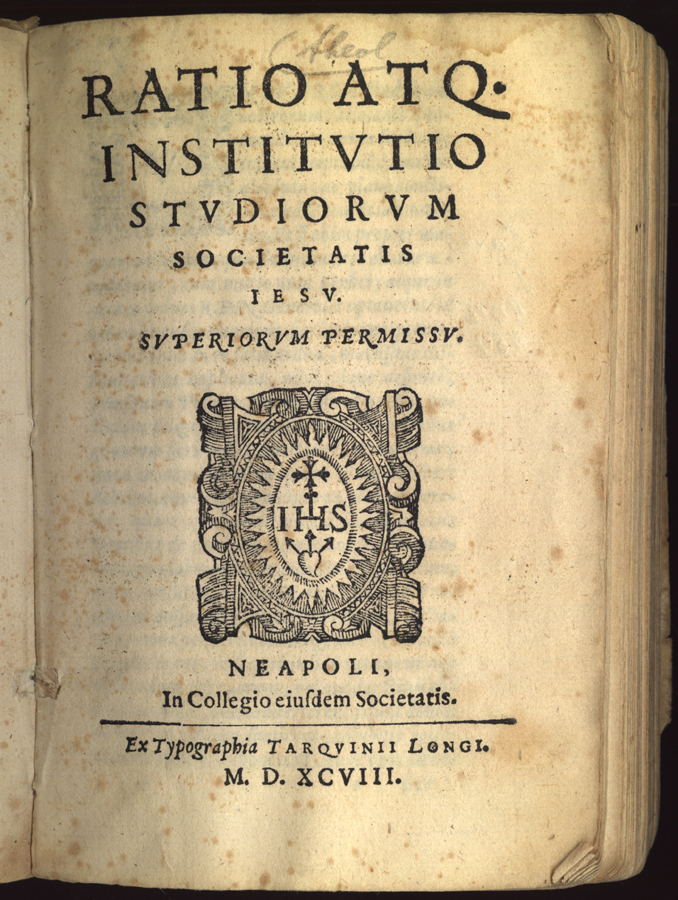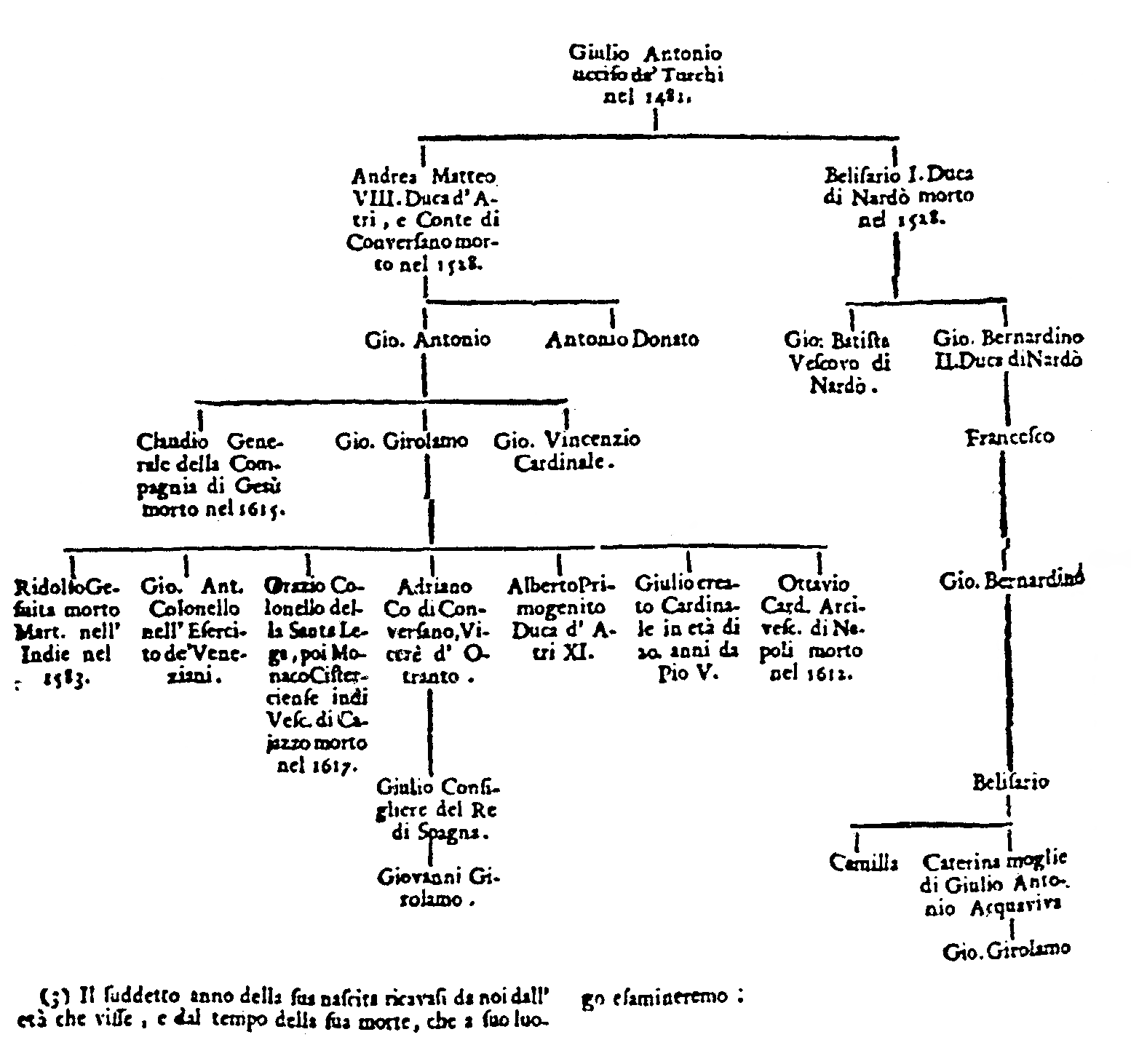|
Acquaviva (other)
Acquaviva may refer to: Places Italy *Acquaviva, Montepulciano, in the province of Siena *Acquaviva Collecroce, in the province of Campobasso *Acquaviva delle Fonti, in the province of Bari *Acquaviva d'Isernia, in the province of Isernia *Acquaviva Picena, in the province of Ascoli Piceno *Acquaviva Platani, in the province of Caltanissetta San Marino *Acquaviva (San Marino), a sanmarinese ''castello'' People *House of Acquaviva, an Italian noble family, descendants of Giulio Antonio Acquaviva *Andrea Matteo Acquaviva (1456–1528), Duca d'Atri, Italian writer *Belisario Acquaviva (c. 1460–1528), his younger brother *Claudio Acquaviva (1543–1615), fifth general of the Society of Jesus *Giulio Antonio Acquaviva (c. 1420–1481), Italian nobleman and condottiere *Jean-Félix Acquaviva (born 1973), French politician *John Acquaviva (born 1963), Canadian DJ *Nick Acquaviva (1927–2003), American composer and band leader *Rodolfo Acquaviva (1550–1583), Jesuit missionary a ... [...More Info...] [...Related Items...] OR: [Wikipedia] [Google] [Baidu] |
Acquaviva, Montepulciano
Acquaviva is a village in Tuscany, central Italy, administratively a frazione of the comune of Montepulciano, province of Siena. At the time of the 2001 census its population was 1,350. National Institute of Statistics (Italy), Istat. Acquaviva is about 67 km from Siena and 8 km from Montepulciano. References Frazioni of Montepulciano {{Siena-geo-stub ...[...More Info...] [...Related Items...] OR: [Wikipedia] [Google] [Baidu] |
Claudio Acquaviva
Claudio Acquaviva, SJ (14 September 1543 – 31 January 1615) was an Italian Jesuit priest. Elected in 1581 as the fifth Superior General of the Society of Jesus, he has been referred to as the second founder of the Jesuit order. Early life and family Claudio Acquaviva was born in Atri, Abruzzo, the son of Giovanni Antonio Acquaviva d'Aragona, 9th Duke of Atri, descended from a noble family illustrious at the court of Naples for its patronage of humanist culture. His grandfather, Andrea Matteo Acquaviva (1456–1528), was a ''condottiere'' and humanist whose brother Belisario Acquaviva (1464–1528), Duke of Nardo, was also a noted man of letters. Some older texts, including those illustrated in this article, spell his name ''Aquaviva''. After initial studies of humanities (Latin, Greek and Hebrew) and Mathematics, he studied Jurisprudence in Perugia. He had heard of the Society of Jesus through his friendship with Francis Borgia and Juan de Polanco. He was particularly impr ... [...More Info...] [...Related Items...] OR: [Wikipedia] [Google] [Baidu] |
Tony Acquaviva
Anthony "Tony" Acquaviva (May 10, 1925 – September 27, 1986"Anthony Acquaviva, Composer, Dies at 61" '''', October 2, 2011.) also known professionally as Acquaviva, was an American composer, conductor and string instrumentalist, and the founder of the New York Pops Symphony Orchestra. Acquaviva was a graduate of the |
Rodolfo Acquaviva
Rodolfo Acquaviva (2 October 1550 – 25 July 1583) was an Italian Jesuit missionary and priest in India who served the court of Akbar the Great from 1580 to 1583. He was killed in 1583 and beatified in 1893. Family Rodolfo Acquaviva was the son of Giangirolamo Acquaviva, the 10th Duke of Atri. He was the great-grandson of Andrea Matteo Acquaviva, condottiere and man of letters. Rodolfo (also known as Rudolfo) belonged to a powerful and illustrious family of Germanic origin settled in the Kingdom of Naples since the twelfth century. His mother was Marguerite Pio where on his mother's side, he was a cousin of Aloysius Gonzaga.D'Souza, Anthony. "Martyrs of Cuncolim." The Catholic Encyclopedia Vol. 4. New York: Robert Appleton Company, 1908. 3 September 2019 Priesthood |
Nick Acquaviva
Nick Acquaviva ''(né'' Nicholas Paul Acquaviva; 27 May 1927 – 2 November 2003), was an American composer, pianist and band leader. Career Acquaviva was born in Beacon, New York, where his father Mike Acquaviva ran a barber shop on Main Street for many years. Like his elder brother Tony Acquaviva, he attended Juilliard and became a professional musician. During World War II Nick Acquaviva served as Seaman first class in the US Navy. He is buried at Riverside National Cemetery. The two brothers are often confused, sometimes even conflating them. Adding to the confusion, is the fact that Tony was married to singer Joni James, for whom Nick wrote several songs, including the hit " My Love, My Love". Selected works Among the songs he wrote are: * "That's What Christmas Means to Me" (1950). Lyrics by Ted Varnick; performed by Eddie Fisher. * "I Will Love You Forever, My Love" (1952). Lyrics by Ted Varnick; performed by Guy Mitchell. * " My Love, My Love" (1953). Lyrics by Bob ... [...More Info...] [...Related Items...] OR: [Wikipedia] [Google] [Baidu] |
John Acquaviva
John Acquaviva (born 1963) is an Italian Canadian DJ, producer, artist, and musical entrepreneur. Music career Acquaviva began his career in Detroit where he performed under the name of J'acquaviva+8. He met fellow DJ Richie Hawtin at The Shelter, and the two tried unsuccessfully to catch the attention of labels like Transmat. In 1989, Acquaviva and Hawtin founded what would become one of the world's best known and influential techno labels, Plus 8 Records. The founding of Plus 8 Records put John Acquaviva and Richie Hawtin at the vanguard of the emerging international electronic music movement and DJ culture. In May 1990, they released the new label's first records, "Elements of Tone" and "We Shall Overcome". In 1993, Acquaviva and Hawtin also founded Definitive Recordings. Acquaviva was one of the first people to take notice and embrace electronic music's digital future at the dawn of 2000 by championing Final Scratch. And following that success, Acquaviva took another step to ... [...More Info...] [...Related Items...] OR: [Wikipedia] [Google] [Baidu] |
Jean-Félix Acquaviva
Jean-Félix Acquaviva (born 19 March 1973 in Bastia) is a French politician representing Pè a Corsica. He was elected to the French National Assembly on 18 June 2017, representing Haute-Corse's 2nd constituency. He was re-elected in the 2022 election under the Femu a Corsica banner. See also * 2017 French legislative election Legislative elections in France were held on 11 and 18 June 2017 (with different dates for voters overseas) to elect the 577 members of the 15th National Assembly of the Fifth Republic. They followed the two-round presidential election won by ... * Haute-Corse's 2nd constituency References 1973 births Living people People from Bastia Femu a Corsica politicians Deputies of the 15th National Assembly of the French Fifth Republic Deputies of the 16th National Assembly of the French Fifth Republic Members of Parliament for Haute-Corse Members of the Corsican Assembly {{HauteCorse-politician-stub ... [...More Info...] [...Related Items...] OR: [Wikipedia] [Google] [Baidu] |
Giulio Antonio Acquaviva
Giulio Antonio Acquaviva (c. 1425 – February 7, 1481) was an Italian nobleman and condottiere. He was 7th House of Acquaviva, Duke of Atri and 1st of Teramo, Count of Conversano and San Flaviano and Lord of Padula and Roseto. Life Giulio Antonio Acquaviva was born at Atri, Italy, Atri, the son of Giosia Acquaviva, 6th Duke of Atri and Count of San Flaviano, and his wife Antonella Migliorati. He was a member of a patrician family of the Kingdom of Naples with large estates in Abruzzo, and held the titles of Duke of Atri, Count of San Flaviano and Giulianova, Lord of Forcella, Roseto, Padula, and was the first Duke of Teramo. By his marriage with Caterina del Balzo Orsini, his family obtained the title of counts of Conversano, which they retained until the early nineteenth century. After the battle of San Flaviano (or Battle of Tordino) between Francesco Sforza and Niccolò Piccinino on 25 July 1460, San Flaviano was sacked by Matteo di Capua's soldiers the following year and r ... [...More Info...] [...Related Items...] OR: [Wikipedia] [Google] [Baidu] |
Belisario Acquaviva
Belisario Acquaviva, Duca di Nardò (c. 1464 – 24 July 1528Adelung, Johann Christoph. ''Allgemeines Gelehrten-Lexicon: Fortsetzung und Ergänzungen zu Christian Gottlieb Jöchers allgemeinem Gelehrten-Lexico, worin die Schriftsteller aller Stände nach ihren vornehmsten Lebensumständen und Schriften beschrieben werden'' d. 3-6von Heinrich Wilhelm Rotermund. d. 7von Otto Günther. - Leipzig t al. Gleditsch t al. 1784-1897. - 7 Bde.) was an Italian nobleman and writer from the Kingdom of Naples. Life A younger son of Giulio Antonio Acquaviva and the younger brother of the literary figure Andrea Matteo Acquaviva, Belisario followed the military profession. Unlike his brother Andrea Matteo, 8th Duke of Atri, who supported the French, Belisario fought against Charles VIII of France, and was rewarded by King Ferdinand II of Naples with the fief of Nardò and the title Count. He was later made Duke of Nardò by Charles V. Belisario was hence enabled not only to preserve his own ... [...More Info...] [...Related Items...] OR: [Wikipedia] [Google] [Baidu] |
Acquaviva Collecroce
Acquaviva Collecroce (also called ''Živavoda Kruč'' or, usually, just ''Kruč'') is a small town and ''comune'' in the province of Campobasso, in the Molise region of southern Italy, between the Biferno and Trigno rivers. Like the smaller towns of Montemitro and San Felice del Molise, Acquaviva Collecroce is home to a community of Molisian Croats, most of whom speak a particular Croatian dialect (known as simply ''na-našo'' or ''naš jezik'', meaning "our language") as well as Italian. There are differences in the dialects of the three towns, but they all descend from the Shtokavian-Ikavian dialect of Dalmatia. The language is considered an endangered diaspora language. Acquaviva is known for the cultivation of small, dark, zerniza figs, as well as fennel and white celery. History In the 12th century, Acquaviva was a base for the Knights of Malta. Though there is evidence of an earlier Slavic settlement in 1297, it is believed that the current inhabitants are not their d ... [...More Info...] [...Related Items...] OR: [Wikipedia] [Google] [Baidu] |
Andrea Matteo Acquaviva
Andrea Matteo Acquaviva, 8th Duke of Atri (1458–1529) was an Italian nobleman and condottiero from the Kingdom of Naples. Born in Conversano, Puglia, he was the second son of Duke Giulio Antonio Acquaviva and his wife Caterina Orsini del Balzo. She was a first cousin of Queen Isabella, the wife of King Ferrante of Naples. He and his brothers were educated in Naples by the humanist scholar Giovanni Pontano. In 1464 he became Marquis of Bitonto. In September 1477, Andrea Matteo married Isabella Piccolomini of Aragon, the daughter of King Ferrante's natural daughter, Maria of Aragon. Maria's husband, Antonio Todeschini Piccolomini, Duke of Amalfi, was a nephew of Pope Pius II and brother of Pope Pius III. In 1478, he purchased from the royal state property the fief of Sternatia in Terra di Otranto. He was prepared by his father for the life of arms, fighting with him in Tuscany (1478) and then in Otranto against the Turks in 1481. His elder brother Giovanni Antonio died in Pisa ... [...More Info...] [...Related Items...] OR: [Wikipedia] [Google] [Baidu] |
House Of Acquaviva
The House of Acquaviva is an aristocratic Italian family from Naples. The head of the family was Duke of Atri in the Abruzzo from the 15th century, and Count of Conversano after an Orsini family marriage in 1546, among other titles. History The Acquaviva family (since 1481 Acquaviva of Aragon) was an Italian noble family, one of the seven great families of the Kingdom of Naples. Among their titles are those of: Dukes of Atri and Counts of San Flaviano (of Giulia since 1481); then also Counts of Conversano, Counts and then Dukes of Nardò, for one branch, and Counts and then Princes of Caserta for the other. In 1195 Rinaldo of Acquaviva, was feudal lord of various lands in the region of Teramo in Abruzzo. In the following decades the family established important relations with the Angevin kings. In 1284 Riccardo di Acquaviva was the executioner of Terra di Otranto in the service of Charles I of Anjou. Dukes of Atri In 1393 Antonio di Acquaviva, who was the first to hold, ... [...More Info...] [...Related Items...] OR: [Wikipedia] [Google] [Baidu] |



